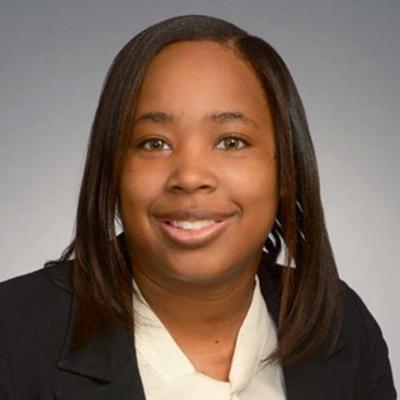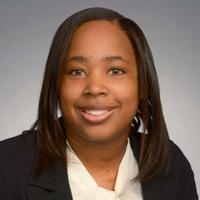
Celetha Chatman
CHICAGO - A state appeals panel has pulled the plug, for now, on a class action lawsuit accusing snack food maker Pepperidge Farm of violating Illinois' biometrics privacy law, as appellate justices said a Cook County judge was wrong to green light the lawsuit even though the lead plaintiff's daughter worked as an attorney at one of the law firms leading the lawsuit.
On Aug. 25, a three-justice panel of the Illinois First District Appellate Court reversed the order from Cook County Circuit Judge Anna M. Loftus, who had granted class certification in the action against Pepperidge Farm.
In the ruling, the justices said Loftus should not have allowed the class action to go forward without at least asking more questions about potential conflicts of interest among the plaintiffs' lawyers in the case.
In particular, the justices noted that the named plaintiff in the action, Tyrone Brewer, who was to act as the class representative, is father to Celetha Chatman, one of two members of the Chicago law firm, known as Community Lawyers, which was approved by Loftus to serve as class counsel to lead the action.
According to court documents, Chatman works at the firm alongside her law partner, attorney Michael Wood.
While Chatman is not listed as a "class counsel" on the case, Wood is, the appellate justices noted. And, they said, that should have raised significant concerns about potential conflicts of interest.
"Here, we conclude that certification was unreasonable given the risks to the class arising from the fact that the sole representative plaintiff is Chatman’s father, as well as the relationships between Chatman and the attorneys appointed as class counsel," the appellate justices wrote.
"... Significantly, the court explicitly and correctly recognized that the continued involvement of plaintiff’s daughter as class counsel posed a conflict of interest that might harm unrepresented class members. It hypothesized that plaintiff (Chatman’s father) might decline a settlement offer that would otherwise be in the best interest of the class members, because of an interest in maximizing attorneys’ fees for class counsel, including his daughter. In recognition of this conflict, it precluded Chatman from serving as class counsel.
"Yet, the court nevertheless permitted Chatman’s colleague at the Community Lawyers firm (Wood), to remain as class counsel," the justices wrote.
The case landed in court in 2021, when Chatman and Wood, together with attorney Michael Drew, of Neighborhood Legal LLC, also of Chicago, filed suit against Pepperidge Farm in Chicago federal court.
The lawsuit accused Pepperidge Farm of allegedly violating the Illinois Biometric Information Privacy Act (BIPA) by allegedly requiring employees to scan their hands to verify their identities to gain entrance to the company's bakery facility in suburban Downers Grove.
According to court documents, the so-called "HandKey" device did not scan fingerprints or handprints, but rather "used an infrared camera to measure features related to the back of an individual's hand, such as finger length or knuckle height."
Regardless, the lawsuit asserted that requiring employees to use the HandKey lock system without obtaining written authorization or providing notices allegedly required by the BIPA law amounted to violations of the law.
According to court documents, the plaintiffs accused Pepperidge Farm of allegedly committing more than 300,000 allegedly illegal biometric scans of as many as 879 bakery workers while the system was in place from 2016-2020. The lawsuit asserted that under an interpretation of the BIPA law in place at the time the lawsuit was filed, that the alleged violations could result in damages worth $1,000 or $5,000 per scan, or as much as $1.8 billion in damages owed by Pepperidge Farm.
According to court documents, Brewer worked at the bakery for seven days in July 2020 and was told by Chatman that the HandKey system may have violated the BIPA law, leading him and his daughter, with her law partner, to file suit.
In May 2022, the plaintiffs voluntarily dismissed their lawsuit in federal court, but immediately refiled their claims in Illinois state court in Cook County Circuit Court.
The new complaint identified only Drew as Brewer's lawyer. According to court documents, Drew also has a past affiliation with Chatman's firm, as a former law clerk at the firm.
However, when the plaintiffs filed their request for class certification in April 2023, the new motion included two additional lawyers, including Wood, of Community Lawyers, and Daniel Brown, of the firm of Williams Barber & Morel, of Chicago.
Loftus then granted class certification over Pepperidge Farm's objection.
In her approval, Loftus specifically addressed Chatman's involvement in the case, noting she was Brewer's daughter and expressly forbidding her from taking part in the case. However, she still granted the motion to name Chatman's law partner, Wood, and Chatman's firm as class counsel.
Loftus also named Drew as class counsel, despite his past affiliations with Chatman and Wood and their firm.
Pepperidge Farm appealed, arguing the certification was improper because of the clear potential for conflict of interest in allowing Chatman's firm to represent Chatman's father in a class action potentially worth many millions of dollars, or more.
On appeal, the First District justices agreed the risk of conflict of interest was too high in this case.
The decision was authored by Justice Aurelia Pucinski. Justices Terrence J. Lavin and Cynthia Y. Cobbs concurred in the ruling.
The decision was issued as an unpublished order under Supreme Court Rule 23, which may limit its use as precedent.
The justices noted Loftus' decision ignored longstanding precedent that should exclude not only Chatman, but her firm, as well.
"... We are troubled that the court failed to conduct an adequate factual inquiry to assess whether the other attorneys could remain as class counsel, given their relationships with Chatman," Pucinski wrote for the panel.
The justices further noted their concerns over the ethics of the attorney arrangement in the case were bolstered by past potential ethics violations identified against Chatman and Wood by a federal judge in other cases. Specifically, Chatman and Wood were admonished by federal judges "concerning their misconduct in fabricating (Fair Debt Collection Practices Act) cases for the purpose of collecting attorney's fees." A federal judge in 2020 threatened them with "severe sanctions" ... "should that conduct occur in the future."
In the ruling, the justices noted that Drew is not directly employed by Chatman, Wood or their firm any longer. But they said Loftus should have looked more deeply into whether Drew also would be motivated too heavily by a desire to maximize attorney fees at the expense of the best possible settlement for the Pepperidge Farm workers whose rights they were supposedly seeking to vindicate.
The justices noted Drew has partnered with Chatman and Wood on numerous other cases. And Drew has also served as Chatman's personal attorney in lawsuits Chatman has filed as a plaintiff.
"Under these circumstances, it is reasonable to surmise that the same ethical concerns about Chatman’s law firm colleague might also apply to Drew," Pucinski wrote. "Given Drew’s longstanding relationship with plaintiff’s daughter, this could also compromise plaintiff’s ability to adequately represent the interests of other class members.
"That is, it is foreseeable that plaintiff might feel tempted to agree to a settlement that would benefit his attorneys (especially his daughter’s longstanding colleagues), even if the settlement was not in the best interest of the broader class."
For that same reason, the justices said Loftus should not allow the class action to proceed so long as Brewer remains the sole named plaintiff on the case.
The appellate panel reversed Loftus' ruling, and sent the case back to her court for further proceedings "to make specific findings as to whether it believes that any of the named class counsel - including (1) attorney Wood of Community Lawyers, (2) attorney Drew of the Neighborhood Legal firm, and (3) the Williams Barber firm - can adequately represent the class."






